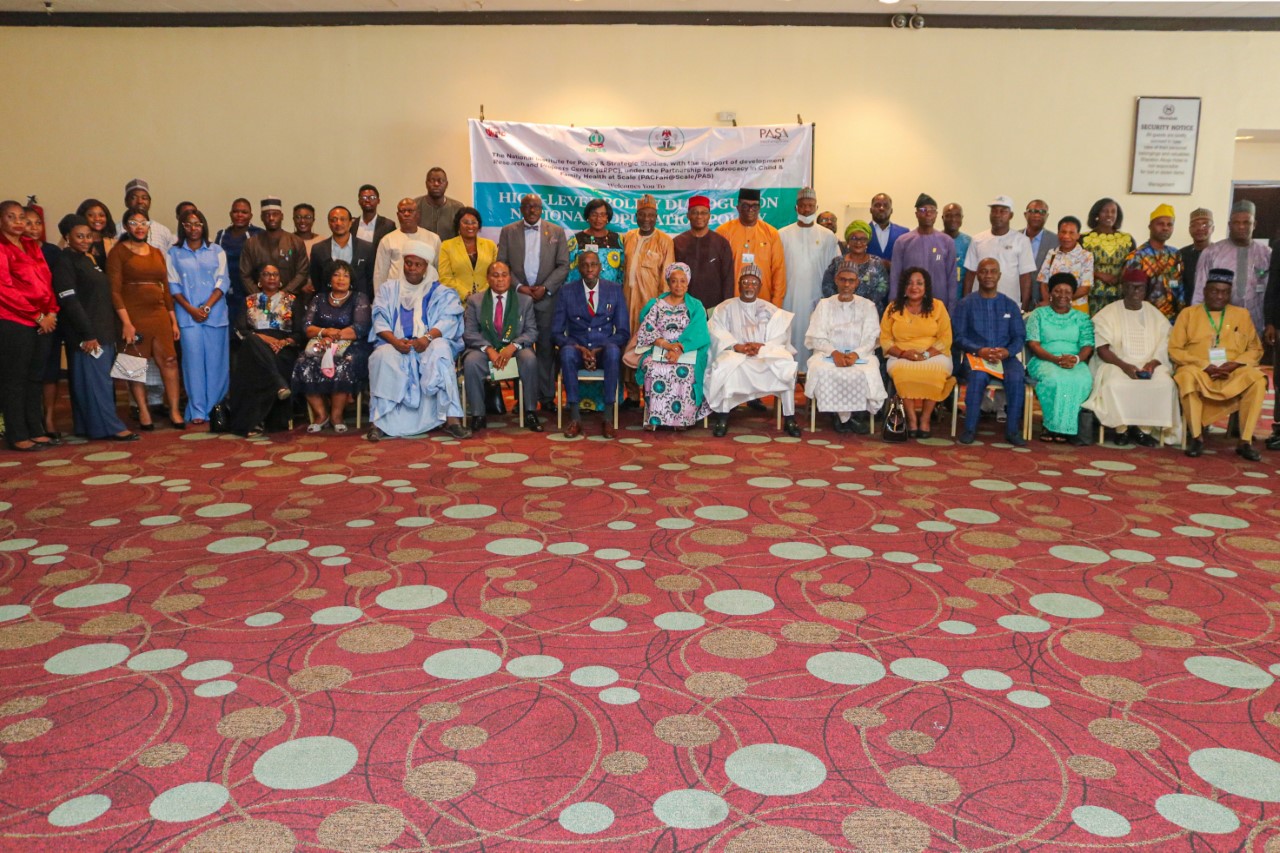By Folakemi Ajala (Lead Writer)
The National Institute of Policy and Strategic Studies (NIPSS) is the top think tank in the federation, responsible for conducting cutting edge research on national issues. Every year, the Nigerian President assigns a theme to members of the Senior Executive Course, the flagship program of the Institute, to conduct research and submit a report directly to him. The theme for members of SEC 42 (2020) was, ‘Population Growth and Human Capital Development: Challenges and Opportunities’.
The findings of the report formed the basis for the Revised National Policy on Population for Sustainable Development, which was launched by President Muhammadu Buhari on February 3, 2022. Contributions like these are critical to the formulation of policy, because when done right, they provide invaluable insight.
Given the contribution of NIPSS in shaping the revision of the National Population Policy, the development Research and Project Centre (dRPC), Partnership for Advocacy in Child and Family Health at Scale (PACFaH@Scale/PAS) and the Bill & Melinda Gates Foundation found an opportunity to support the NIPSS in bringing together relevant experts and practitioners who have the mandate and capacity for implementation, to deliberate on how to make the transition from good policy to effective implementation.
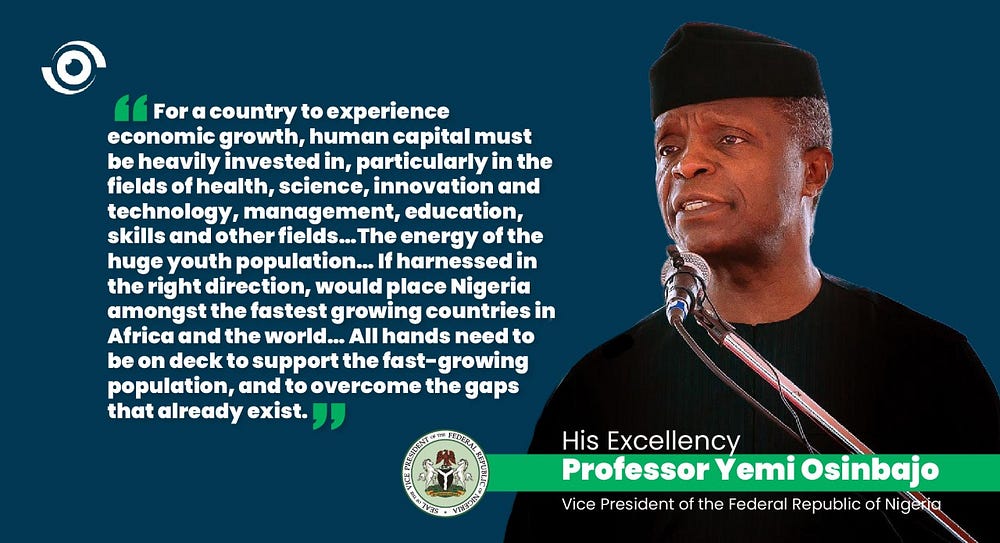
To this end, a high-level meeting, titled ‘Implementing the National Population Policy: The Responsibility of the MDAs and Private Sector at National and Subnational Levels’ took place in June 2022. The event was attended by stakeholders and implementers across the public and private sector, academia, CSOs, and international donor agencies.
At the meeting, Hon. Nasir Isa Kwarra, the Chairman, National Population Commission, highlighted some important findings of the research carried out by SEC 42:
- Nigeria’s population is one of the highest in the world, and as of 2019, 86.7% of the population were dependent. This means that out of 210 million Nigerians, only 27.9 million were productive.
- Nigeria’s demographic crisis was compounded by the inadequate attention given to the components of human capital development over the years, which include; health and wellbeing, education and skills development, and expansion of per capita income and gross domestic product.
- Family Planning is important for the management of our population and remains one of the most cost-effective ways of preventing maternal, infant, and child mortality; reducing unintended pregnancies and high risk births; promoting gender equality; accelerated socioeconomic development; and protection of the environment.
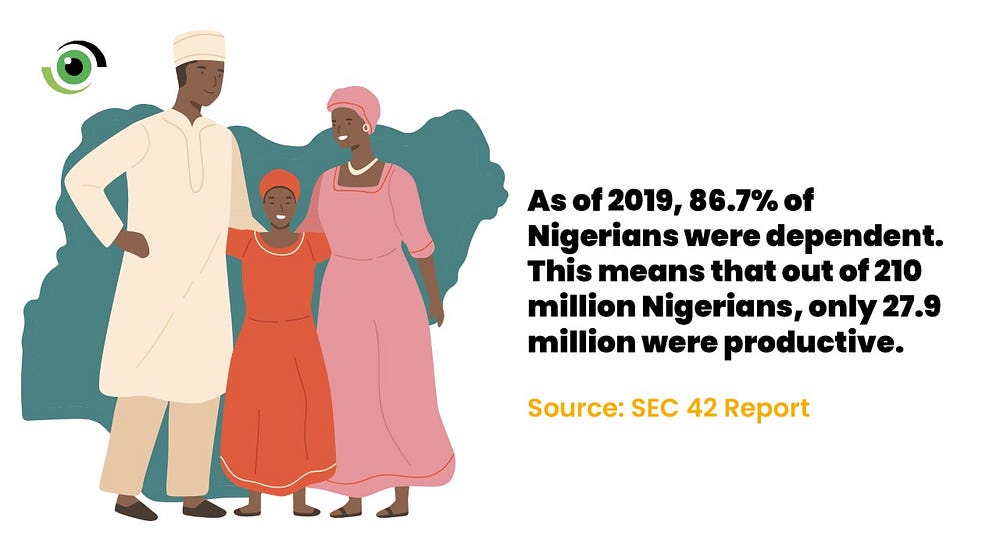
The Revised National Policy provides three frameworks which classify the responsibilities of those concerned. These frameworks are designed to achieve cohesion, ownership, collaboration, partnership, and engagement across all levels and sectors for the effective implementation of the policy.
First is the National Council for Population Management which is chaired by the serving President of the Federal Republic of Nigeria, and its membership is comprised of the heads of implementing MDAs, such as; the Heads of Defence Agencies, the Inspector General of the Federation, the Surveyor General of the Federation, the Senate President, the Secretary to the Government of the Federation, and the Head of Civil Service of the Federation. This council is responsible for providing guidance for the implementation of the policy at the highest level.
Second is the Population Advisory Group (PAG) which constitutes 15 members and will be inaugurated this month. These members would include representation from all six geopolitical zones of the country, eminent persons in the field of population and development (such as royal fathers and traditional leaders), with a reflection of gender balance. The PAG will be chaired by the Director General (DG) of the National Population Commission.
Third are the foot soldiers — the Population Technical Working Group — those directly involved in the implementation of the policy, especially at the grassroots level. Civil Society Organisations (CSOs), the media, international donor agencies and organisations such as the World Bank and the United Nations Population Fund (UNFPA), think tanks such as NIPSS and others, constitute this group. This is the most active group, and is also chaired by the DG, National Population Commission.
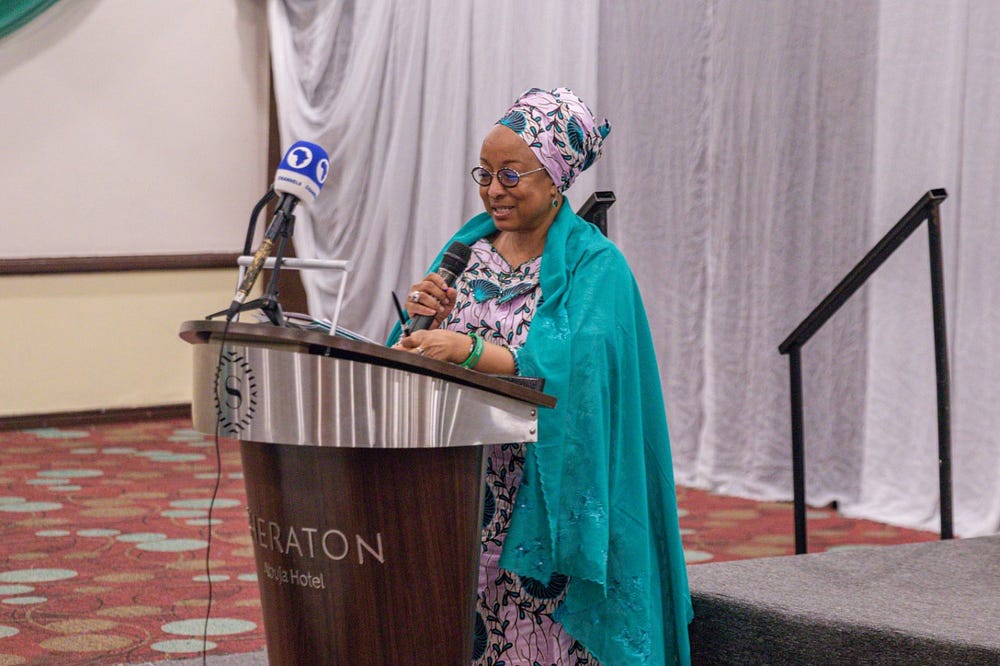
The importance of properly implementing this new policy was highlighted by Vice President Yemi Osinbajo in a speech presented by Dr Mariam Uwais who represented him at by at the event. “For a country to experience economic growth, human capital must be heavily invested in, particularly in the fields of health, science, innovation and technology, management, education, skills and other fields…The energy of the huge youth population… If harnessed in the right direction, would place Nigeria amongst the fastest growing countries in Africa and the world… All hands need to be on deck to support the fast-growing population, and to overcome the gaps that already exist.”
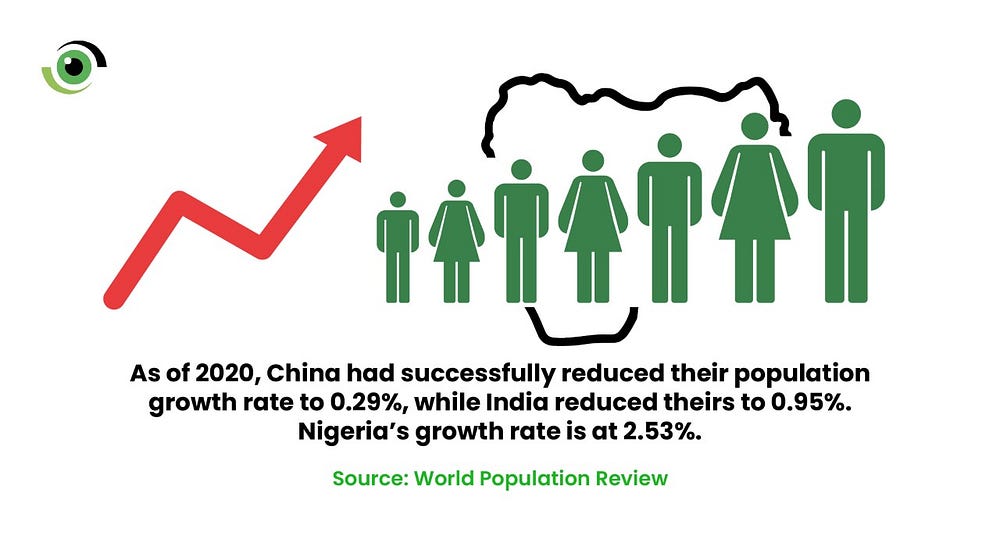
The Way Forward
It is no secret that Nigeria is facing a demographic crisis, but it is still possible to turn things around. The DG, NIPSS, Prof. Ayo Omotayo, noted that China and India are the two largest populations in the world, where the effective implementation of relevant policies have stemmed the population growth rate to a manageable proportion. As of 2020, China had successfully reduced their population growth rate to 0.29%, while India reduced theirs to 0.95%. Nigeria’s growth rate is at 2.53%.
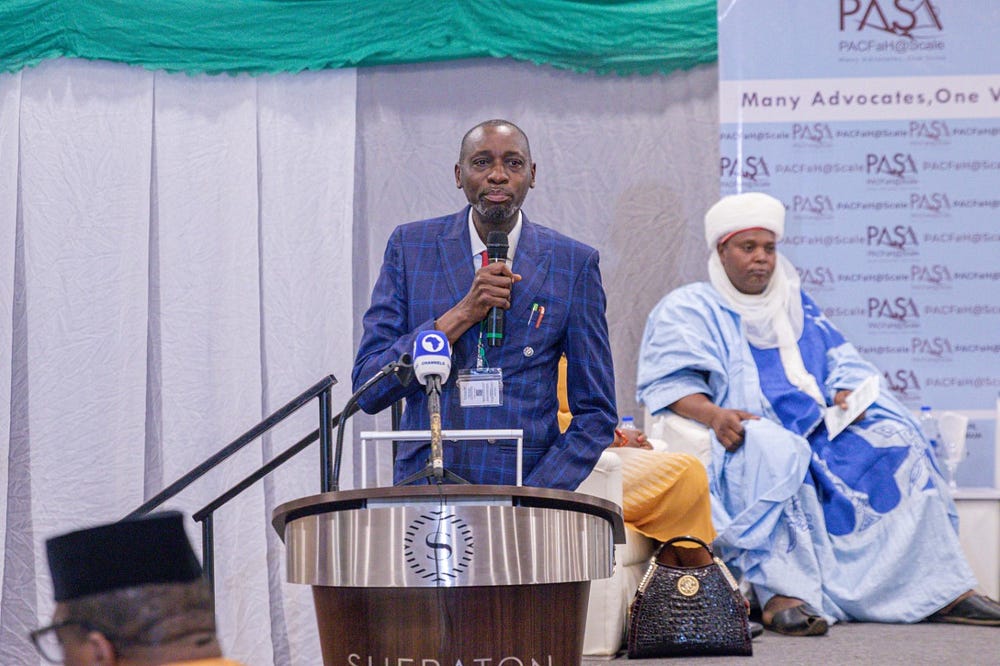
Experts from the public and private sector agree that deliberate steps are the key to transitioning from policy to implementation. A few of them are highlighted below:
- Funding– Although the Revised National Policy lists family planning as one of the most effective ways to control population growth, there is no line item for family planning in the 2022 budget. There’s a popular saying that “money makes the world go round”, so if we are going to move beyond talk into action, funds need to be channelled towards making sure that families have access to family planning commodities at all levels of healthcare, at little to no cost. Family planning services should also be included in health insurance offerings.
- Political Will- Population management must employ a generational approach. This means that implementing the policy should be handled from a developmental standpoint, not used as a means of scoring political points. The present administration has a unique opportunity to set up systems which will practically run themselves, but this requires multi-sectoral capacity building.
- Effective Communication- The Revised National Policy should be widely disseminated. The National Population Commission and National Orientation Agency need to work together to ensure that the communication gap between the implementers and the end user is bridged. The wide and diverse reach of social media can be used to ensure public awareness and engagement.
Sound policies are necessary for any country’s growth and development, but that is not enough. They must be implemented and implemented well as a policy is only as good as its execution. In the words of Prof. Yemi Osinbajo “Population is not the problem, poor management is.”.
It is critical that we connect the dots between population control and its profoundly positive impact on total quality of life.


